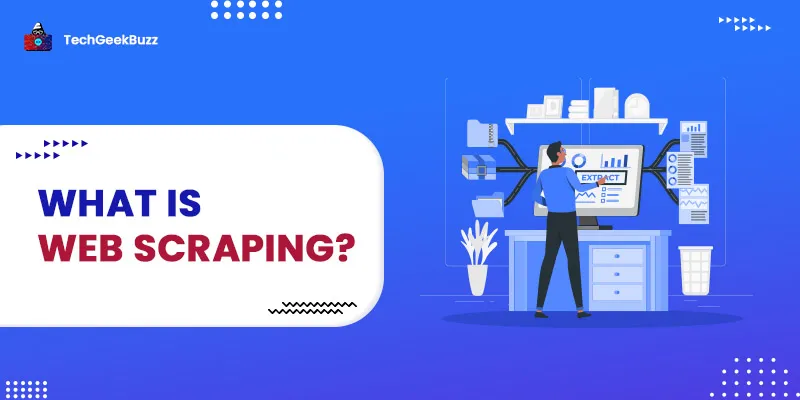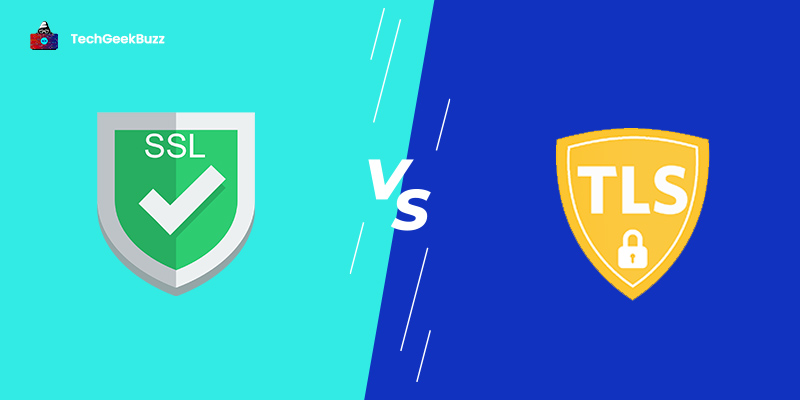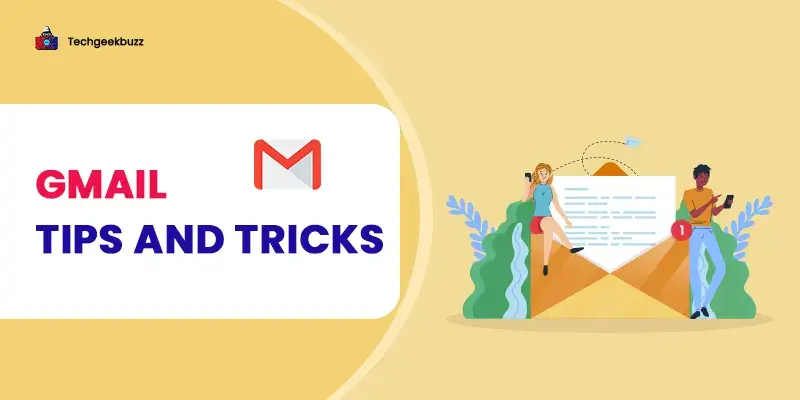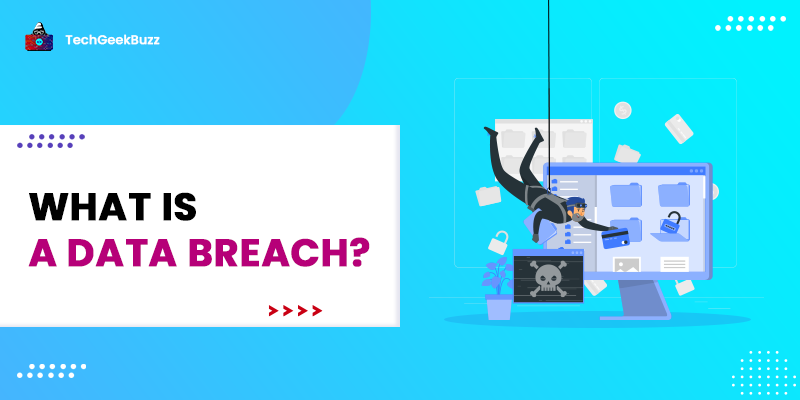The internet has made it easy for us to access any kind of information. When we need any information, we normally search for it on the web and copy-paste it into a document. However, the option of copying and pasting sounds good only if the amount of data is limited.
However, what if you require a vast amount of data from websites to train your machine-learning model? Also, what will you do if you need to collect and analyze enormous amounts of data to start a project or devise a new business strategy?
In such scenarios, copying and pasting data from websites would not be feasible since it becomes a very tedious task. Well, this is where web scraping comes into the picture. With this technique, you can get thousands and millions of data sets in a jiffy. It uses an automation method that enables you to retrieve large volumes of data sets within a fraction of the time.
This article will help you understand what web scraping is and how a web scraper works. In addition, you will learn about the different types of web scrapers, along with the advantages, disadvantages, and applications of web scraping.
What is Web Scraping?
Web scraping, also known as web harvesting or web data extraction, is a technique for extracting massive volumes of data from websites. It is an automated process to extract data from websites using a bot or web crawler. Most of the data on the websites is unstructured and in HTML format . This technique converts unstructured data into a structured or usable format so that you can use it for various purposes.
Web scraping a web page implies fetching data and extracting it. It uses the crawler and the scraper to fetch and extract data from a web page, respectively. The crawler leverages an artificial intelligence algorithm to fetch a web page for processing. Fetching a web page means downloading it, which a browser does when you view that page.
On the other hand, the scraper is responsible for extracting data from the web page. It parses, searches, reformats, and copies data from the web page to a spreadsheet or loads it into a database .
Web scraping can be done manually or by using automated tools, called web scrapers. Using web scrapers for web scraping is cost-effective and faster than manual web scraping.
How Do Web Scrapers Work?
With scrapers, you can either extract entire data or some specific data from a website. If you want to extract a particular data from a website, you can specify it, and the web scraper will quickly extract it for you. For example, consider that you want to scrape an Amazon page for all the available Java books. However, you only want the prices and descriptions of the books and not customer reviews.
You just need to specify the data you need, and the web scraper will extract it. Initially, you need to feed the web scraper with the URL of the website you wish to scrape. You can even provide more than one URL. Later, it loads all the HTML code for the website. Some advanced web scrapers also load CSS and JavaScript elements.
Once the web scraper loads the HTML code, it extracts the required data from the HTML code and outputs the extracted data into the format you specify. But if you want specific data, you need to follow the process of selecting the desired data from the website.
Most web scrapers output the data in the form of a CSV file or an Excel spreadsheet. Advanced web scrapers support other formats as well, such as JSON.
Different Types of Web Scrapers
You will find a plethora of web scrapers in the market today. They are categorized into four different categories, as listed below:
1. Self-Built and Pre-Built Web Scrapers
Self-built web scrapers are the ones that you build on your own. However, developing web scrapers requires sound knowledge of programming. Also, when you build your own web scraper, you can add any functionality that you wish.
On the flip side, pre-built web scrapers are readily available. They are already built by someone else, and you can download and use them instantly. Moreover, many web scrapers offer advanced features, such as scrape scheduling, and additional output formats, like JSON , etc., and many others.
2. Browser Extension and Software Web Scrapers
Browser extension web scrapers are extensions that you can add to your browser. As they are integrated with your browser, browser extension web scrapers are easy to use. However, they have limited functionality. Meaning that browser extensions of web scrapers are not able to perform any advanced functionalities that are outside the scope of your browser.
Unlike browser extension web scrapers, software web scrapers are web scrapers that you can download on your computer system. They are more complex and less convenient than browser extension web scrapers. However, they can have advanced features that are not limited to the scope of your browser.
3. Cloud Web Scrapers
Cloud web scrapers run on the cloud, which is an off-site server that a company provides you from where you buy the web scraper. Such web scrapers do not use your computer’s local resources while scraping websites. Therefore, you can perform other tasks on your computer and get notified once the scraping is done.
4. Local Web Scrapers
Local web scrapers work on your computer system using the system’s resources and the internet connection. Therefore, if a local web scraper utilizes a high amount of CPU and RAM, it may slow down your system when scraping is in progress.
Advantages and Disadvantages of Web Scraping
As every coin has two sides, web scraping also comes with some advantages and disadvantages. Let us now shed light on some major advantages and disadvantages of this technique.
Advantages of Web Scraping
1. Automation
The most significant advantage of web scraping is automation since it eliminates the need to perform the tedious task of copying and pasting data from websites. It simplifies the process of extracting data from websites. Using web scraping tools, you can quickly extract large volumes of data from any website with just a few clicks.
2. Speed
Speed is yet another desirable advantage of web scraping. Just image copying and pasting text, images, or other data from a website into your document. Such a tiresome and monotonous task requires a lot of time, maybe weeks or months. Web scraping performs the task of scraping in minutes or hours, depending on the amount of data you need to extract.
3. Cost-Effective
Copying and pasting large volumes of data manually requires a large workforce and high budgets. Web scraping tools easily extract the desired data in a cost-effective manner. When you use web scraping tools, you do not need any workforce. Also, you just need to provide the website URL, and the web scraper itself does everything for you.
4. Data Accuracy
Web scraping ensures not only high speed but high accuracy. Manual data extraction from websites may sometimes result in the extraction of incorrect data due to human errors. When you use web scraping tools, there is no chance for human errors, and hence, you can ensure data accuracy.
Disadvantages of Web Scraping
1. Data Extraction is not Data Analysis
Once web scraping extracts data in the form of a CSV file or an Excel spreadsheet, analyzing that data is time-consuming and an energy-intensive task. This is because the data comes in the form of HTML code, which becomes challenging for some people to understand. Therefore, you need first to treat that data, i.e., convert it into a human-readable form using specific software.
1. Learning Curve
Different web scraping tools have different learning curves. If you want to use a visual web scraper to extract data, you need to learn it first. Also, some web scrapers require you to learn the web scraping method in different programming languages, such as Java, PHP, etc.
2. Crawlers require Maintenance
The HTML structure of websites changes regularly, and hence, the crawlers may break sometimes. Therefore, even if you use a pre-built or self-built web scraper, you always need to perform some kind of maintenance to keep data collection pipelines working smoothly.
Top 7 Applications of Web Scraping
Web scraping has multiple applications across various industry verticals. Let us now discuss some popular applications of web scraping below.
1. Price Monitoring
Price monitoring is one of the most typical applications of web scraping. Companies can leverage web scraping to extract product data from other websites and analyze their prices. Based on the prices of products on other websites, they can fix the optimal price for their products in order to attract more people and achieve maximum revenue.
2. Sentiment Analysis
It is essential for companies to perform sentiment analysis to understand the sentiment of their product among customers. Web scraping can help to perform sentiment analysis. Companies can leverage web scraping to collect data from various social media websites, such as Facebook, Twitter, or Instagram, to collect user reviews for their products. Such a collection of sentiments or views about their products from customers can help them create new or improve existing products as per customers’ expectations.
3. Email Marketing
Email marketing involves sending commercial messages to a group of people via email. Web scraping also helps companies with email marketing. It helps them to collect email IDs of people from various websites and send them promotional and marketing emails.
4. Machine Learning Models
Building a machine learning model requires vast volumes of data sets for training. Web scraping can help you retrieve massive amounts of data, such as images, text, etc. in a short time. Such data helps to train your machine learning model.
5. Market Research
Companies also use web scraping to perform market research. With the help of this, they can collect large volumes of data and analyze customer trends to determine in which direction they should move in the future to obtain maximum revenue.
6. News Monitoring
New monitoring is yet another activity that companies can perform through web scraping. They can web scrape news websites to gain insights into the current news. Web scraping news websites is beneficial for companies that depend on news for their daily activities.
7. Real Estate
By using web scraping, you can get property data from the list of properties provided by various real estate websites. Moreover, you can also use this technique to extract owner and agent contact details.
Conclusion
This brings us to the end of our discussion about web scraping. It helps us to extract massive amounts of data sets from various websites quite quickly. Also, it helps companies with numerous tasks, such as email marketing, price monitoring, market research, sentiment analysis, etc., through which they can maximize their revenue. Moreover, when it comes to choosing the appropriate web scraper, you have different choices. You need to choose the appropriate one that best suits your requirements.
We hope that this article has helped you understand web scraping in detail. If you have any queries regarding this article, feel free to share them in the comments section below.
People are also reading:
- What is Network Security?
- Security Checklist for Mobile Development
- What is IoT Security?
- What is Cybersecurity?
- Cybersecurity Certifications
- Network Testing Tools
- Open-Source Security Testing Tools
- Online Tools To Scan Website Security Vulnerabilities & Malware
- Chrome Flags
- Data Science vs Data Mining




